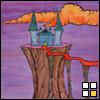|
ESL Forum:
Techniques and methods
in Language Teaching
Games, activities
and teaching ideas
Grammar and
Linguistics
Teaching material
Concerning
worksheets
Concerning
powerpoints
Concerning online
exercises
Make suggestions,
report errors
Ask for help
Message board
|
ESL forum >
Ask for help > short VS long adjectives:
short VS long adjectives:
|

fatenam

|
short VS long adjectives:
|
|
I`m teaching about the comparative form and pupils have to differentiate between short and long adjectives before changing them from the simple form to the comparative form.
However, pupils just mix it up when it comes to some confusing adjs.
Would you supply me with the rules:
Which adjectives are considered short and which ones are considered long.
Why is " happy" ( 2 syllables ) for example considered short? ( happier than ).
And "serious" ( 2 syllables) considered long. ( more serious than ).
Thanks in advance. |
30 Apr 2012
|
|
|
|

ascincoquinas

|
|
Hi! Here some useful links for you: hope this helps. |
30 Apr 2012
|
|
|

Dameon

|
Two-syllable adjectives.With most two-syllable adjectives, you form the comparative with more and the superlative with most. | Two-Syllable Adjective | Comparative Form | Superlative Form |
|---|
| peaceful | more peaceful | most peaceful | | pleasant | more pleasant | most pleasant | | careful | more careful | most careful | | thoughtful | more thoughtful | most thoughtful |
- This morning is more peaceful than yesterday morning.
- Max ´┐Żs house in the mountains is the most peaceful in the world.
- Max is more careful than Mike.
- Of all the taxi drivers, Jack is the most careful.
- Jill is more thoughtful than your sister.
- Mary is the most thoughtful person I ´┐Żve ever met.
If the two-syllable adjectives ends with ´┐Ży, change the y to i and add ´┐Żer for the comparative form. For the superlative form change the y to i and add ´┐Żest. | Two-Syllable Adjective Ending with -y | Comparative Form | Superlative Form |
|---|
| happy | happier | happiest | | angry | angrier | angriest | | busy | busier | busiest |
- John is happier today than he was yesterday.
- John is the happiest boy in the world.
- Max is angrier than Mary.
- Of all of John ´┐Żs victims, Max is the angriest.
- Mary is busier than Max.
- Mary is the busiest person I ´┐Żve ever met.
Two-syllable adjectives ending in ´┐Żer, -le, or ´┐Żow take ´┐Żer and ´┐Żest to form the comparative and superlative forms. | Two-Syllable Adjective Ending with -er, -le, or -ow | Comparative Form | Superlative Form |
|---|
| narrow | narrower | narrowest | | gentle | gentler | gentlest |
- The roads in this town are narrower than the roads in the city.
- This road is the narrowest of all the roads in California.
- Big dogs are gentler than small dogs.
- Of all the dogs in the world, English Mastiffs are the gentlest.
Adjectives with three or more syllables.For adjectives with three syllables or more, you form the comparative with more and the superlative with most. | Adjective with Three or More Syllables | Comparative Form | Superlative Form |
|---|
| generous | more generous | most generous | | important | more important | most important | | intelligent | more intelligent | most intelligent |
- John is more generous than Jack.
- John is the most generous of all the people I know.
- Health is more important than money.
- Of all the people I know, Max is the most important.
- Women are more intelligent than men.
- Mary is the most intelligent person I ´┐Żve ever met.
|
30 Apr 2012
|
|
|
|
|

havpa

|
|
"happy" is considered short because it has got two syllables but the last sound that you hear is of a vowel (i); although serious has got two syllables, the last sound that you hear is of a consonant (z) - this rules works with most two syllable adjectives: - pretty (last sound: i) - short - famous (last sound: z) - long ... What counts is the sound that you hear not the letter! Hope it helped
|
30 Apr 2012
|
|
|

ayouda

|
The rules to form comparatives and superlatives:1. One syllable adjective ending in a silent ´┐Że ´┐Ż ´┐Ż nice - Comparative ´┐Ż add ´┐Żr ´┐Ż ´┐Ż nicer
- Superlative ´┐Ż add ´┐Żst ´┐Ż ´┐Ż nicest
2. One syllable adjective ending in one vowel and one consonnant ´┐Ż big - Comparative ´┐Ż the consonant is doubled and ´┐Żer ´┐Ż is added ´┐Żbigger
- Superlative ´┐Ż the consonant is doubled and ´┐Żest ´┐Ż is added´┐Żbiggest
3. One syllable adjective ending in more than one consonant or more than a vowel ´┐Ż high, cheap - Comparative ´┐Ż ´┐Żer ´┐Ż is added ´┐Ż higher, cheaper
- Superlative ´┐Ż ´┐Żest is added ´┐Ż highest, cheapest
4. A two syllable adjective ending in ´┐Ży ´┐Ż ´┐Ż happy - Comparative ´┐Ż ´┐Ży ´┐Ż becomes ´┐Żi ´┐Ż and ´┐Żer ´┐Ż is added ´┐Ż happier
- Superlative ´┐Ż ´┐Ży ´┐Ż becomes ´┐Żi ´┐Ż and ´┐Żest ´┐Ż is added ´┐Ż happiest
5. Tow syllable or more adjectives without ´┐Ży ´┐Ż at the end ´┐Ż exciting - Comparative ´┐Ż more + the adjective + than ´┐Ż more exciting than
- Superlative ´┐Ż more + the adjective + than ´┐Ż the most exciting
Examples: - The Nile River is longer and more famous than the Thames.
- Egypt is much hotter than Sweden.
- Everest is the highest mountain in the world.
- This is one of the most exciting films I have ever seen.
|
30 Apr 2012
|
|
|

Apodo

|
Doesn ´┐Żt ´┐Żserious ´┐Ż have 3 syllables?
se´┐Żri´┐Żous (s´┐Żr  - - s) s)
@havpa
I liked your explanation :-)
But I hear and say ´┐Żs ´┐Ż not ´┐Żz ´┐Ż at the end of serious. |
30 Apr 2012
|
|
|

PhilipR

|
|
Apodo is right. Serious has three syllables.
Simplified rules are as follows: - 1-syllable words take -er and -est - 3+-syllable words use more and the most - 2-syllable words: flip a coin |
1 May 2012
|
|
|

fatenam

|
|
Thaaaaaaaaaaaaaaaaaaaaaaaaaaaaaaaaaaaaaaaaaankkks a lot my dear colleagues for all your explanations. They are geaaaaaaaaaaaaaaaaaaaaaaaaaaaaaaaaaaaaaat. |
20 Oct 2012
|
|
|